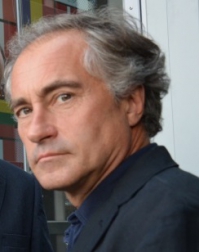EU-Canada Conference Yields Thin Pickings for Gas
The European Union and Canada may have much in common, as the EU ambassador to Canada Marie-Anne Coninsx told the EU-Canada Energy Conference in Ottawa September 22. However, gas trade is not likely to be one of those areas for some time to come, despite the natural fit between a major gas producer and a major gas importer that is keen to diversify its supplies.
The most advanced plant in the eastern coast of Canada – nearest to the EU – is Pieridae Energy’s 10mn mt/yr Goldboro project, which has received necessary approvals at federal and local level to liquefy and export gas from the US. It has an agreement to sell half of that to the German firm Uniper, who can take it where it wants, and not necessarily the EU.
However the upstream side of things is less certain, Pieridae Energy CEO Alfred Sorensen told a panel session. He described Canadian production as a cottage industry, not conducive to the kind of long-term certainty that banks need before lending to LNG projects. Suppliers do not look more than a few years ahead, he said, five years at most, whereas a 20-yr project needs certainty of supply. Part of the problem was that the government had no insight into the gas business. Financing therefore remains unconfirmed.
The EU and Canada are set to sign a Comprehensive Economic & Trade Agreement in Brussels next month, following on from an existing Strategic Partnership Agreement which covers energy. The EU is a net importer of energy, Coninsx said, spending some C$1bn ($750mn) /day, and Canada has a lot of oil and gas that could be shipped to the EU, widening its suppliers and increasing competition. The EC also approves of Canada’s position on global warming.

Marie-Anne Coninsx (Source: EC)
The European Commission’s deputy director-general for energy Christopher Jones made the point that competition in energy supply was good and that it would welcome Canada as a future supplier. Canada too needs new markets as gas exports to the US have been falling, unable to compete with its relatively new gas production such as the Marcellus shale – a possible source of gas for the Pieridae project.
But gas is only one way of producing heat and power, and the EU has diversified into wind and solar energy, whose market share has shot up from 1.5% in 2008 to 8-9% today. This may have brought “challenges” including the higher price of subsidies and congestion in the electricity system; however, "the EU is immensely proud of this initiative,” Jones said.

The European Commission’s deputy director-general for energy Christopher Jones (Photo source: EC)
The EU and Canada also have their local issues: in Canada, the ten provinces have succeeded in wresting more and more autonomy from the capital, Ottawa and the First Nations are blocking expansion of oil and gas pipelines in their traditional environments; while in the EU, energy remains a matter for national governments – although the Energy Union does change that relationship – frustrating the implementation of a blanket policy for all 28 member states with widely differing aims and business culture.
William Powell
For more on this, please see the forthcoming issue of Natural Gas World, to be published October 5


